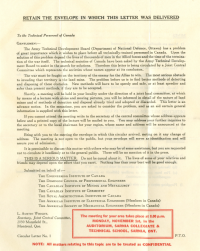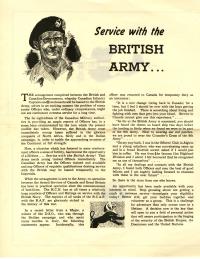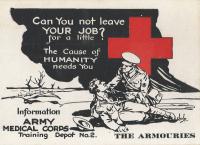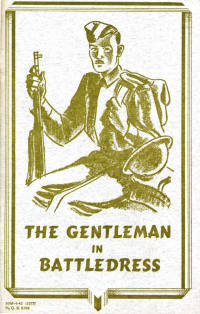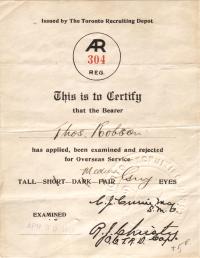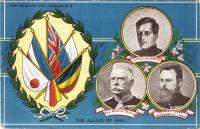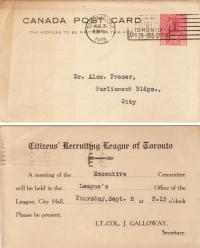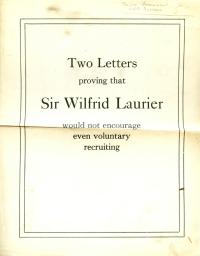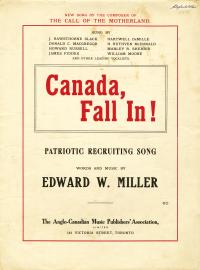Recruiting
Call for Technical Developments - Land Mines
This letter was sent by the Department of National Defence in 1943 in order to address the issue of land mines in enemy lands. This letter addressed various institutes with technically-trained professionals that the government believed could come up with a faster and safer method of removal.
The letter also stressed the urgency of this matter, stating that, "The lives of some of your relatives and friends may depend upon the effort that you exert."
Canloan officers
Heavy losses among British infantry officers necessitated the creation of a program to loan trained Canadian officers, of which there was an ample supply, to British units in the field.
The Canadian Army Medical Corps wants men!
This recruiting card was typical in promising to get the volunteer to the front quickly, but unusual in offering valuable training for a postwar career.
The Gentleman in Battledress
This speech by Lt.Col. James Mess tried to recruit young men to the Canadian Army.
Unfit for service
During the First World War, young men were often pressured to enlist - and were grateful to have a certificate like this one, which proved that Thomas Robson had been willing to serve but had been rejected by the army.
Unfit for service
During the First World War, young men were often pressured to enlist - and were grateful to have a certificate like this one, which proved that Thomas Robson had been willing to serve but had been rejected by the army.
Don't be neutral!
Did Canadians really enlist in the First World War to help Belgium? The Hamilton Recruiting League obviously thought so, and used Belgium as the subject of one of its recruiting cards.
Recruiting in Toronto
Before the First World War was twelve months old, citizens' recruiting groups had swung into action to ensure that there were sufficient numbers of volunteers coming forward to reinforce Canadian units at the front.
Laurier and voluntary enlistment
During the bitterly fought 1917 election campaign, the Union Government released this correspondence between Liberal leader Sir Wilfrid Laurier and the Canadian Club in Hamilton, Ontario, to cast doubt on Laurier's commitment to the war effort.
"Put down the saw for the sword"
In a song that captured the essence of the citizen-soldier ideal, men were asked to "Close up the ledger and put down the pen, Hark to the trumpet call."

